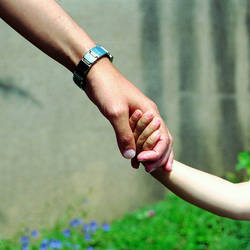Marie Collins: “the Priest’s Abuse Added to My Confusion and My Sense of Guilt”
Vatican Insider
The testimony of Marie Collins, from Ireland, who was abused for 50 years by a hospital chaplain. Psychiatrists say “If no one believes her, she will never heal” The second day of the international Symposium on the prevention of sexual abuse by the Catholic clergy entitled “Towards Healing and Renewal” and organised by the Pontifical Gregorian University, concluded with a penitential vigil in the church of Saint Ignatius. The one hundred plus bishops and 30 superiors representing religious orders who took part in the conference, will participate in the "penitential vigil" , during which seven representatives of different church groups will ask God and victims for forgiveness, for the sins committed and their failure to punish and prevent these offences. During the liturgy, a “meaningful, clear and explicit” text will be read out, said Fr. Hans Zollner, President of the Symposium’s organizing committee. A victim will then ask God for the strength to forgive. The conference was opened this morning by Marie Collins, an Irish abuse survivor who had been raped at the age of 13 by a chaplain, in a hospital where she had been a patient over fifty years ago. Collins said that although many may disagree with her and each of the victims will have to decide for themselves whether they wish to accept the apology made by those responsible, the fact that the Church is asking for forgiveness is important. As she described her experience, she explained how much more difficult it was to react when the abuser was a priest: “The fact that the man abusing me was a priest, added to the great confusion in my mind... Those fingers that would abuse my body the night before were the next morning holding and offering me the sacred host.” The chaplain reassured her, telling her he was a priest’ ‘he could do no wrong’,” Marie said. This added weight to my feelings of guilt and the conviction that what had happened was my fault; not his. When I left the hospital I was not the same child who had entered. I was no longer a confident, carefree and happy child. Now I was convinced I was a bad person and I needed to hide that from everyone.” Collins also talked about the reply she got when she went to tell her story to the Archbishop of Dublin many years later. Collins learnt that Cardinal Desmond Connell’s “priority was the protection of the 'good name' of my abuser... The Archbishop considered my abuse “historical” so felt it would be unfair to tarnish the priest’s “good name” now.” Collins also expressed her gratitude to Pope Benedict XVI, as he was the first, she said, to act as an example, making time to listen to victims. Addressing superiors and clerics, Collins stressed how important it is to listen to victims, bearing in mind that they may only confess an act of abuse a long time after it has taken place. Psychiatrist and psychotherapist, Sheila Hollins, explained that “Not being believed or even worse, being blamed for the abuse, adds hugely to the emotional and mental suffering caused by sexual abuse, and how the failure of an abuser to admit his guilt or of his superiors to take appropriate action, further compounds the damage.” “In the case of a priest there is an extra layer of trust and deference, which makes a disclosure of abuse even harder... In my experience, the psychiatrist stressed, the lack of an admission of guilt and of an apology is usually the biggest barrier to healing and recovery. As a person of faith, I am a great believer in the power of forgiveness as a healing agent. But forgiveness is rarely achieved without confession and reparation.” “Justice is” therefore “needed for victims of clerical sexual abuse.” being believed isin itself healing, especially if it is associated with an admission of guilt or responsibility, and even more so if there is an attempt at reparation. But this type of justice is only the beginning,” Hollins said. “Recovery is a slow process and some people will never fully recover from such a profound abuse of power and trust when they were at their most vulnerable, especially when the abuser was a priest. Ongoing support and friendship and a willingness to listen time and again to the anger and fragility that remains will require considerable patience because healing for some people is a very distant hope.”
|
.
Any original material on these pages is copyright © BishopAccountability.org 2004. Reproduce freely with attribution.
